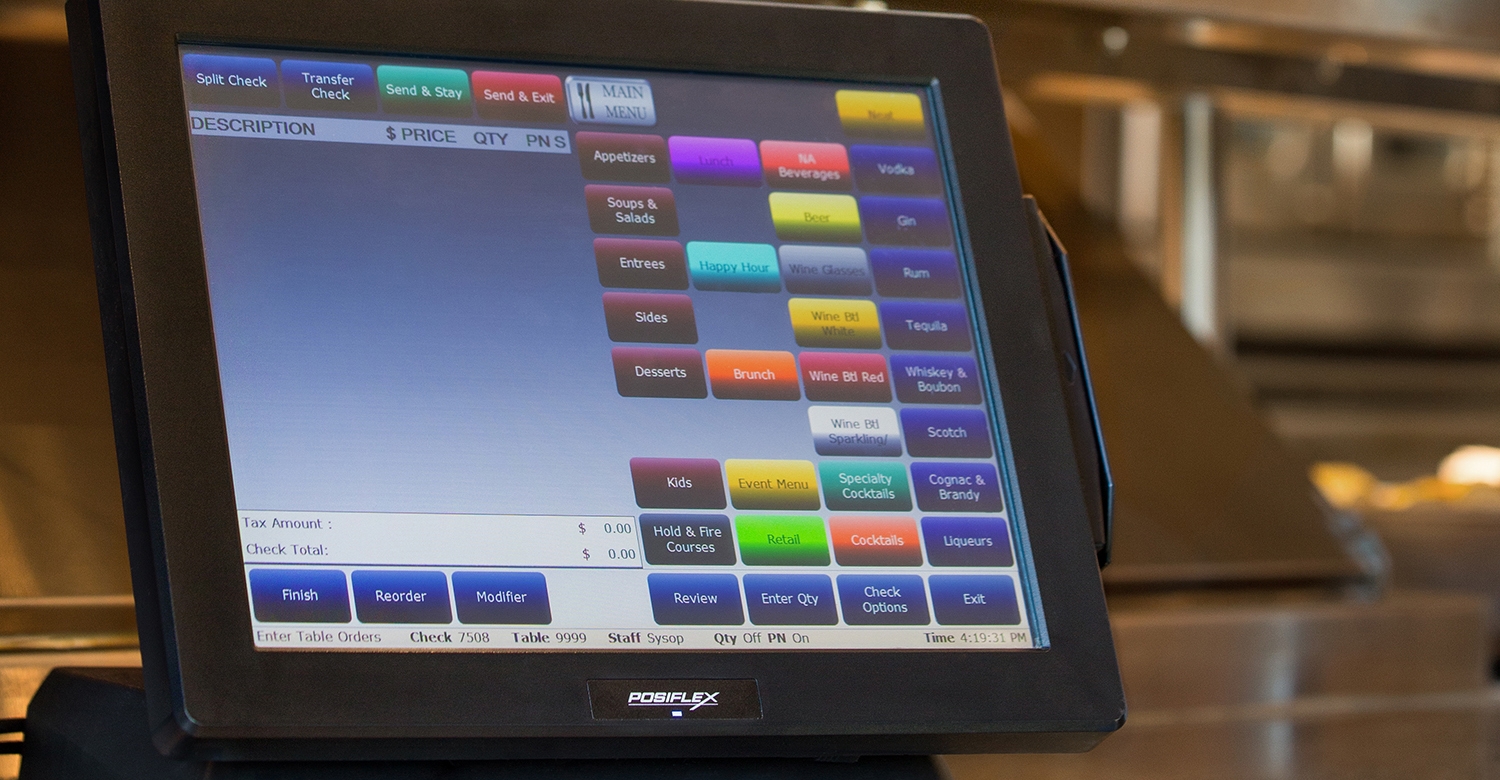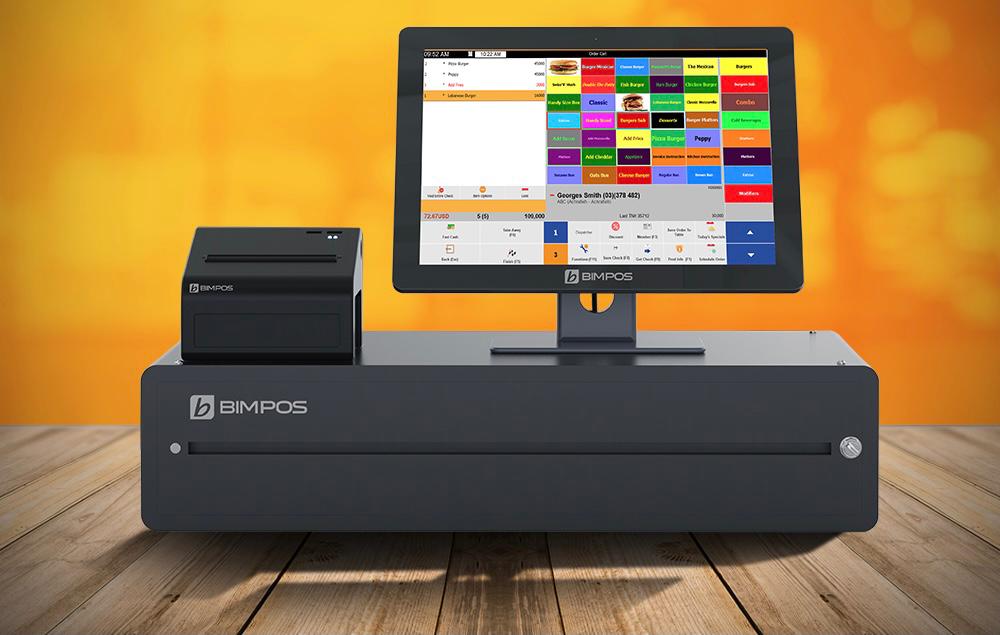Some Known Questions About Pos Machine.

POS Software: Retail Point-Of-Sale Solutions Streamline Deals
The Basic Principles Of Restaurant Pos

Hardware Components of a Point of Sale System What makes a POS system tick? It's not simply software; the hardware plays a starring function. Think about it as the body to the software's brain. Without the right hardware, even the most advanced POS software is simply a pretty face. Necessary POS Hardware So, what are the must-haves? Let's break it down. The main processing system, often a computer system or tablet, is the heart of the operation. The display or touchscreen show allows personnel to interact with the system. A barcode scanner speeds up the checkout process. Remember the days of manually entering each code? The reliable invoice printer offers consumers with a record of their purchase. A money drawer keeps your money safe and arranged. A card reader permits clients to pay with credit or debit cards. Diving Deeper: Beyond the Basics However wait, there's more! Depending upon your company, you may need customized hardware. For example, a dining establishment might integrate cooking area printers to relay orders, while a retail store may use label printers for item tagging. Ever question how your local bakery immediately prints those delicious-looking labels? Picking the Right Hardware: A Balancing Act Choosing the ideal hardware isn't almost purchasing the most costly equipment. It has to do with discovering the sweet spot in between functionality, sturdiness, and spending plan. A little organization simply beginning might go with a more basic setup, while a high-volume seller will require robust, high-performance makers. Is it much better to purchase new or used? Consider your options carefully. A new system offers the current technology and service warranty security, however a refurbished system can save you cash. The Future of POS Hardware What does the future hold? Expect to see even more integration with mobile phones, biometric scanners for employee authentication, and advanced analytics dashboards showed on larger, clearer screens. Envision a world where stock is automatically upgraded in real-time click here as products are scanned-- a world where you can track your best-selling item from anywhere in the world. The possibilities are unlimited, and the hardware is continuously progressing to meet the needs of today's services. Are you ready to upgrade your point of sale system?
Software Application Features and Capabilities: The Heart of Your POS System
Ever enjoy a seasoned barista glide through a busy early morning rush? Their trick isn't just caffeine; it's a seamless dance with their POS system. The software is the conductor of your business symphony, orchestrating everything from sales to inventory. What notes should you be listening for? What capabilities really matter in today's market?
Stock Management: Beyond Counting Beans
Forget spreadsheets that haunt your dreams. Modern POS systems use real-time inventory tracking, notifying you when your stock of artisanal coffee beans dips precariously low. Consider it as a digital guardian angel, preventing those uncomfortable "Sorry, we're out!" moments to customers. What if you could likewise anticipate need based upon historical information? Many systems now offer forecasting tools, a powerful weapon versus overstocking and lost sales. This assists prevent the dilemma of running out of popular products or accumulating excess stock of slow-moving products, both of which can constrain money flow and area.
Sales Reporting and Analytics: Decoding the Information
Sales information is the brand-new gold, and your POS system is the miner. Forget simply knowing just how much you sold today. Dive deep into the information to uncover trends, recognize your very popular items, and comprehend consumer habits. Which menu product sets completely with the daily special? Which promo resonated most with your clients? These insights are not just fascinating; they're actionable intelligence. Without trusted sales reporting, navigating the intricacies of service decision-making ends up being like cruising without a compass, increasing the opportunity of errors and missed chances.
Customer Relationship Management (CRM): Structure Bridges, Not Walls
Keeping in mind a routine client's name and favorite order is captivating, but scaling that personal touch is difficult. POS systems with CRM capabilities allow you to track consumer purchase history, preferences, and even birthdays. Imagine immediately offering a discount rate on their birthday-- a little gesture that cultivates loyalty and encourages repeat service. But there is the possible snag of poor data quality, which can lead to inaccurate client profiles and inadequate marketing efforts.
Payment Processing: Streamlining the Deal
The checkout experience can make or break a sale. Smooth combination with various payment approaches-- charge card, mobile wallets, even copyright-- is non-negotiable. Can your system manage split payments? Does it offer protected tokenization to safeguard consumer information? A clunky payment process resembles hitting a sour note in your service symphony, potentially interfering with the entire efficiency. Guaranteeing compatibility with evolving payment innovations and adherence to security standards are paramount for keeping client trust and functional efficiency.
Staff Member Management: Keeping the Team in Sync
From clocking in and out to managing consents and tracking performance, employee management features improve operations and improve responsibility. Is scheduling a headache? Lots of POS systems provide integrated scheduling tools, optimizing staffing levels based on predicted demand. A common barrier that is often neglected is the challenge of integrating worker management performances with payroll systems, which can result in mistakes and inadequacies in wage estimations.
Advanced Features: Leveling Up Your Operations
- Table Management: Perfect for dining establishments, this feature permits you to picture your dining-room, track table status, and manage appointments.
- Commitment Programs: Reward your finest clients and motivate repeat service with incorporated commitment programs.
- Online Ordering Combination: Flawlessly incorporate your POS system with online ordering platforms to broaden your reach.
Picking the best POS system is about more than just performance; it has to do with finding a partner that can grow with your business. Consider your present needs, expect future growth, and don't hesitate to ask the difficult questions. The right software can transform your business from a chaotic cacophony into a harmonious work of art.
Industry-Specific POS System Applications
Believe of the local pastry shop, dynamic with early morning customers yearning fresh croissants. A generic POS system might deal with deals, but can it handle intricate recipes, track active ingredient stock, or instantly change production schedules based on sales information? Probably not. That is where the charm of industry-specific POS systems shines.
Restaurants and Hospitality
For busy restaurants, speed and precision are vital. How many times have you seen servers handling orders, modifications, and splitting expenses, all while trying to offer exceptional service? A dining establishment POS system improves these processes, permitting table management, kitchen order tickets, and even online buying combination. These systems frequently consist of functions like ingredient-level inventory tracking, important for handling food costs and lessening waste. Ever wonder why your favorite dish is sometimes not available? It may stem from a lack of proper inventory management.
- Table Management
- Kitchen Order Tickets
- Online Ordering Integration
- Ingredient-Level Inventory Tracking
Retail Solutions
Retail, with its diverse stock and consumer interactions, requires a different set of tools. Picture a boutique clothes shop struggling to monitor sizes, colors, and seasonal collections utilizing a basic checkout system. An industry-specific retail POS system provides functions like barcode scanning, consumer loyalty programs, and comprehensive sales reporting. These systems can even integrate with e-commerce platforms, supplying a smooth omnichannel experience for consumers. Did you know some retail POS systems can predict future sales trends based on historical information? Now that is powerful!
The Perils of a Mismatch
Selecting the incorrect POS system can develop significant operational hurdles. A clothes shop using a restaurant POS, for instance, would find it unsuitable for managing inventory with sizes and colors. The lack of appropriate reporting and analytics could result in mistaken getting choices and lost revenue. The outcome could be similar to attempting to fit a square peg in a round hole.
Secret Considerations
Choosing an industry-specific POS system needs cautious evaluation. Think of your organization's unique needs and functional workflows. Does the system incorporate with existing software? Does it offer the needed reporting capabilities? Is it scalable to accommodate future growth? A well-chosen POS system is not just a deal tool; it's a strategic property that can drive effectiveness, enhance client fulfillment, and ultimately, enhance your bottom line. Remember, it is a financial investment in your company's future, not simply an expenditure.
Security Factors To Consider for Point of Sale Systems
Ever heard the tale of the mom-and-pop shop that lost everything since of a single, overlooked security defect in their POS system!.?. !? It's a cautionary tale, and it highlights an important aspect typically overshadowed by the allure of elegant features and structured operations. The reality is, a POS system is just as excellent as its security. What excellent is a system that crunches numbers in a flash if it enables lawbreakers to swipe customer's data simply as quickly?
The Vulnerability Minefield
The digital landscape is a battlefield. Every POS system, no matter size or sophistication, is a possible target. Are you genuinely got ready for the threats prowling around the corner? The real pinch comes when you find that your outdated software has an open hole that hackers can exploit, turning your organization into an unwitting accomplice in identity theft. The trouble is that hackers are crafty and are constantly altering their techniques.
Common Security Spaces and Specialist Tips
- Weak Passwords: "Password123" isn't cutting it. Usage strong, unique passwords for all POS system accounts and alter them frequently. Two-factor authentication is a must.
- Unsecured Networks: Your Wi-Fi is like leaving the front door open. Protect your network with strong file encryption (WPA3 if possible) and consider a separate network for your POS system.
- Out-of-date Software: Software application suppliers patch security holes all the time. Stopping working to upgrade resembles inviting problem. Set up automated updates or schedule routine upkeep.
- Worker Training: Your personnel is your first line of defense. Train them to recognize phishing efforts, secure passwords, and report suspicious activity.
Data File Encryption: Your Guard Versus the Dark Arts
Consider information file encryption as a secret code. It scrambles sensitive info, like credit card numbers, making it unreadable to unapproved users. Without encryption, your customers' financial information resemble sitting ducks, ripe for the picking by cybercriminals. It's not simply about safeguarding your consumers; it's about safeguarding your credibility and avoiding substantial fines.
PCI Compliance: The Rulebook You Can't Neglect
If you accept charge card, you're bound by the Payment Card Industry Data Security Requirement (PCI DSS) It's a set of security standards designed to secure cardholder information. Stopping working to comply can result in fines, charges, and even the loss of your capability to process credit card payments. It's a headache, yes, however it's a necessary one. Think about PCI compliance as the expense of doing company in the digital age.
Consider this: every deal processed through your point of sale is a possible entry point for malicious stars. By implementing robust security steps, you're not simply protecting your business; you're securing your consumers' trust and guaranteeing the long-lasting viability of your operations. The security of your POS system isn't simply a technical problem; it's an organization vital. It needs constant alertness, proactive measures, and a commitment to staying ahead of the curve.